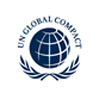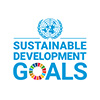Health and safety
By their nature, some of our activities may expose our workers to occupational hazards. Our priority is to prevent occupational illness and fatalities through identifying and improving our management of health hazards.
Our approach
We are committed to protecting the health and wellbeing of our workforce. Where appropriate, we also aim to extend this commitment to our local communities.
We do this by creating healthy workplaces, where we identify and manage potential health risks, impacts and opportunities, and reduce health hazards exposure at source. For our communities, where appropriate we aim to contribute to efforts that combat regional health issues and promote healthy lifestyles.
We promote, educate and support our workforce in making healthy lifestyle choices and recognising the importance of good mental health. We expect everyone entering our industrial sites to be fit for work, free of fatigue and not under the influence of alcohol or drugs that may impair their ability to work safely.
Exposure to occupational hazards
Some of our activities may expose our workers to occupational hazards. We identify health hazards that could result in illness or injury, and prioritise exposure controls based on potential health consequences, e.g., carcinogens, mutagens and reprotoxic substances.
Our approach is for the continual improvement of our understanding and control of health hazards, with the goal of eliminating occupational diseases in our workplaces. We implement a risk-based approach that underpins the continual improvement of our understanding and control of health hazards, with the goal of eliminating occupational diseases in our workplaces. We also identify opportunities to promote, educate and support our workers to make healthy lifestyle choices, helping them to lead a healthy life.
Common expectations and/or practices for health risk assessments (HRAs), Glencore Exposure Action Levels (GEALs), hygiene monitoring, health hazards exposure reduction and fitness for work assessments are the core of our five-year health strategy. The strategy supports our industrial assets to develop and implement health management systems that strengthen controls for health hazards.
We require our industrial assets to conduct occupational HRAs and health needs assessments (HNAs), and to assess and manage community health risks, impacts and opportunities. This includes identifying and managing:
- health hazards and risks, including identifying potential exposures to workers, and determining preventative measures;
- key health issues, needs and interests for our workforce, including psychosocial risks, and implementing approaches
- to inform, educate and/or mitigate issues; and
- community health risks, impacts and opportunities, that may either impact our operations or are exacerbated by our presence in an area.
Our industrial assets develop, implement and monitor occupational health management plans based on the outcomes of each HRA and HNA.
Our HIV/AIDS management programmes
As a company operating in over 35 countries, we have the opportunity to make a positive impact on the communities near our assets. A key part of operating responsibly is to work with government, NGOs and other stakeholders to support the health and wellbeing of our host communities.
In the DRC, we deliver health and education campaigns and effective prevention strategies through our Watu Wetu Health Services programmes. We provide voluntary counselling, testing and awareness, including information on how to reduce mother-to-child transmission, which we offer as part of our employees’ annual medical examinations. Collaboration is central to any successful approach to tackling HIV/AIDS, and we work with the country’s Ministry of Health, local authority and a local radio station.
In South Africa, we are working with local organisations to advance our Employee Wellness Programme, which aims to increase the number of HIV-positive employees registered in care and treatment programmes.
Principles we follow
-
 UN Global CompactVisit the website
UN Global CompactVisit the website -
 Principle 1Read more
Principle 1Read morebusinesses should support and respect the protection of internationally proclaimed human rights
-

-
ICMMVisit the website
-

-
 UN SD GoalsVisit the website
UN SD GoalsVisit the website -

-


